Supervision
Dissertation Supervision
I supervise dissertation students as part of the psychology undergraduate and MSc programmes at the University of Stirling - this involves developing and conducting a research project in collaboration with students. Dissertation supervision includes supporting students through all stages of the research process, including developing a research question, designing a study to test hypotheses, collecting the data, analysing the data, and interpreting and writing up the findings in a dissertation.For undergraduate or MSc students considering me as a potential supervisor, my aim with dissertation projects is to conduct high-quality research that could lead to a publication in a scientific journal. I’m usually happy for students to explore their own topics of interest related to evolutionary psychology, partner choice and romantic/sexual relationships, or the social perception of faces/people. If there is a potential idea that you would like to explore, I would encourage you to email me at anthony.lee@stir.ac.uk.
Listed below are papers that include work from dissertation projects. You can also view and participate in dissertation studies where we are currently collecting data by clicking here.
Undergraduate Dissertations

Does beliefs in gender role stereotypes influence use of facial gender typicality when making sexual orientation judgements?
Maisie proposed a novel hypothesis that predicted that people with stronger beliefs in gender stereotypes were more likely to use facial gender atypicality cues (i.e., the femininity of male faces, or the masculinity of female faces) when making judgements of sexual orientation. We investigated this in Maisie's dissertation, and indeed, results supported the hypothesis. We subsequently replicated the finding with a second study and published both together in the journal Archives of Sexual Behavior.
De La Mare, J. K., Taylor, M. G., & Lee, A. J. (2024) Does beliefs in gender role stereotypes influence use of facial gender typicality when making sexual orientation judgements? Archives of Sexual Behavior. FULL TEXT AVAILABLE
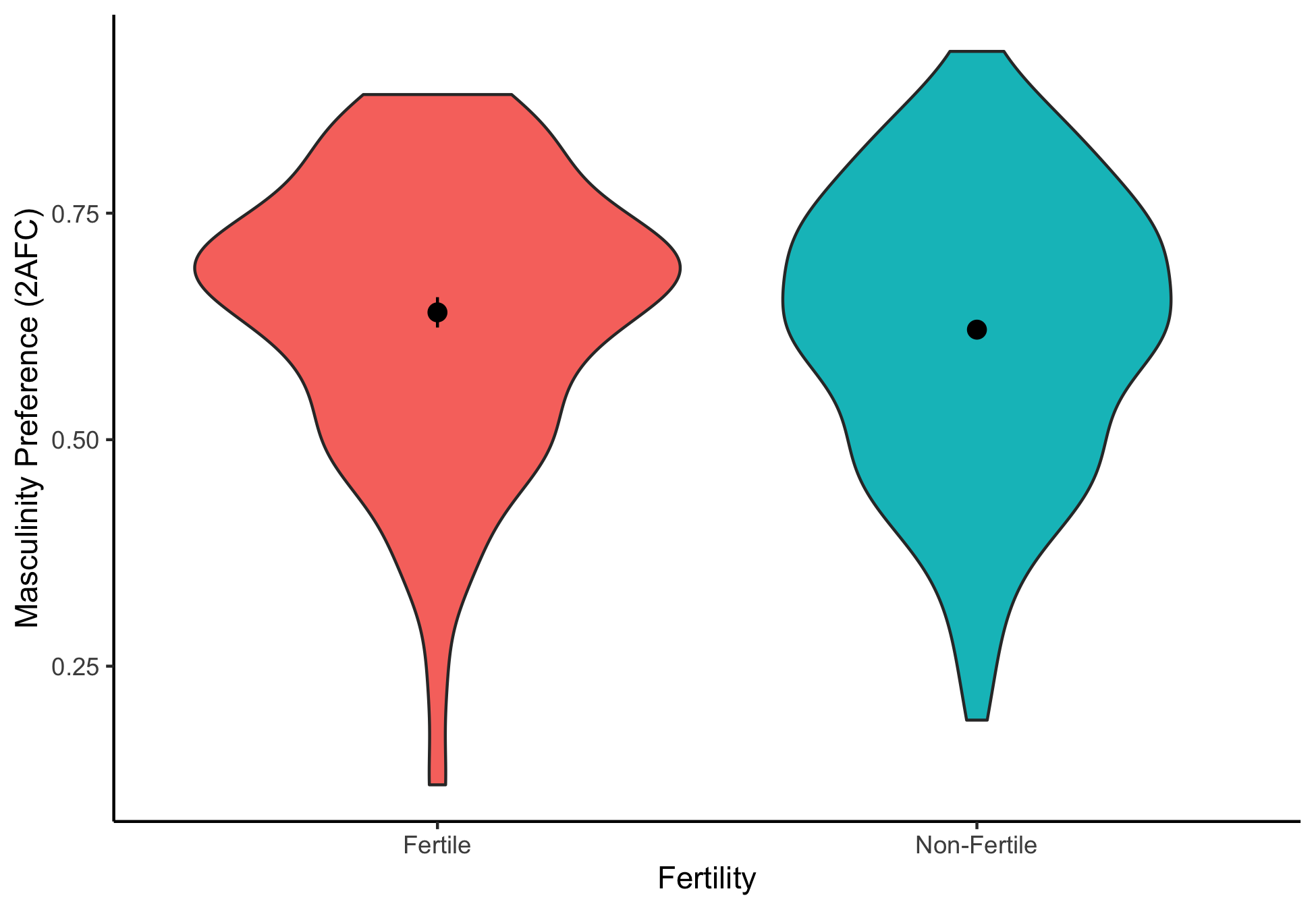
Does openness to sex and conception probability influence women's preference for facial masculinity?
Henry was completing a joint degree in Biology and Psychology, and was interested in the dual mating strategy hypothesis, which suggest women's preferences in a partner depends on their fertility status. Work from Henry's undergraduate dissertation formed Study 3 of the publication below questionning the validity of the theory.
Lee, A. J., Jones, B. C., Zietsch, B. P., Jern, P., Connolly, H., & Marcinkowska, U. (2023) No evidence that sociosexual orientation moderates effects of conception probability on women’s preferences for male facial masculinity. Scientific Reports, 13, 10245. FULL TEXT AVAILABLE
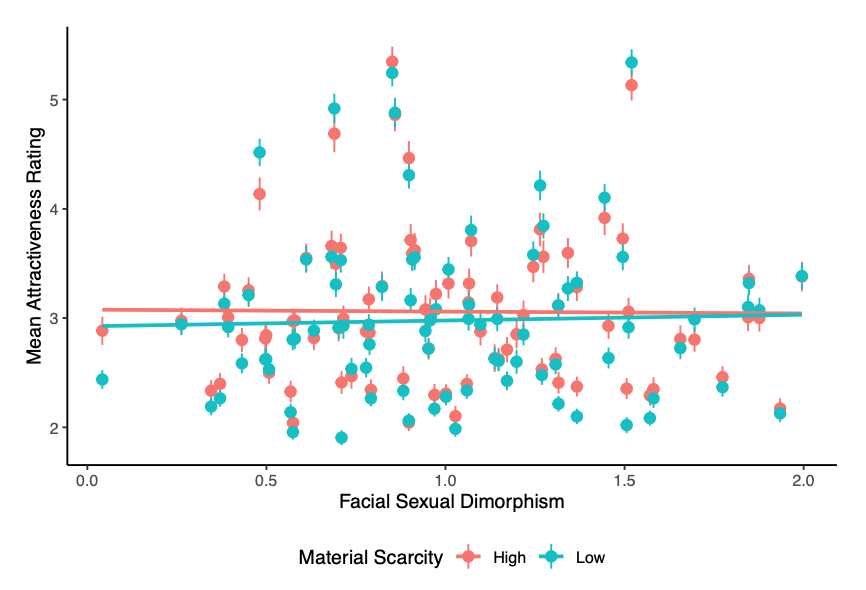
Does resource scarcity predict women's attraction to masculine men?
Nikita was interested in women's preference for facial masculinity, and I suggested she investigate the impact of resource scarcity. As predicted, we found that material scarcity (and not other types of scarcity) was associated with women's preference for facial masculinity.
Lee, A. J., & McGuire, N. K. J. (2023) Women’s preferences for masculinity in male faces are predicted by material scarcity, but not time or psychological scarcity. Evolutionary Psychology, 21(3). FULL TEXT AVAILABLE

How does study design impact conclusions when assessing attraction to facial symmetry?
For her undergraduate dissertation, Hannah investigated the impact of study design on preference for facial symmetry. This was then followed-up by Pamela in her dissertation. Both dissertations formed Study 1 and 3 respectively in the article below published in a special issue of Symmetry.
Lee, A. J., De La Mare, J. K., Moore, H. A., & Umeh, P. C. (2021) Preference for facial symmetry depends on study design. Symmetry, 13(9), 1637. FULL TEXT AVAILABLE
Postgraduate (MSc) Dissertations
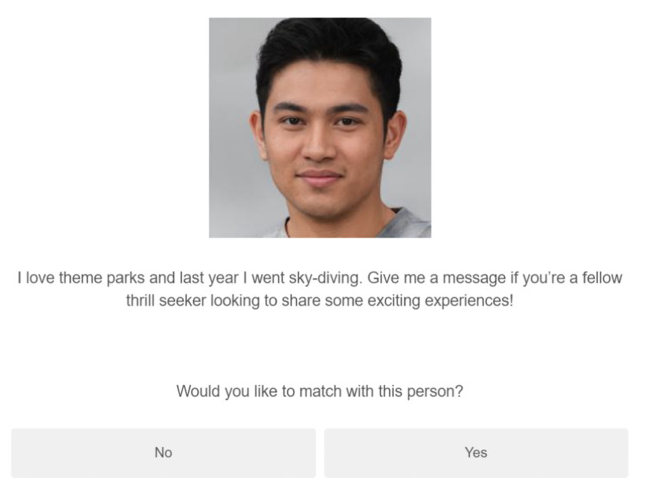
Are people attracted to those with a similar personality?
Jess was interested in whether people are attracted to those who have a similar personality in online dating apps. Jess created realistic dating profiles that varied in personality, and measured the personality of participants. Indeed, this seems to be the case for some personality traits, such as agreeableness, openness, and extraversion. Jess went on to do a PhD in the lab.
De La Mare, J. K., & Lee, A. J. (2023) Assortative preferences for personality and online dating apps: Individuals prefer profiles similar to themselves on agreeableness, openness, and extraversion. Personality and Individual Differences, 208, 112185. FULL TEXT AVAILABLE
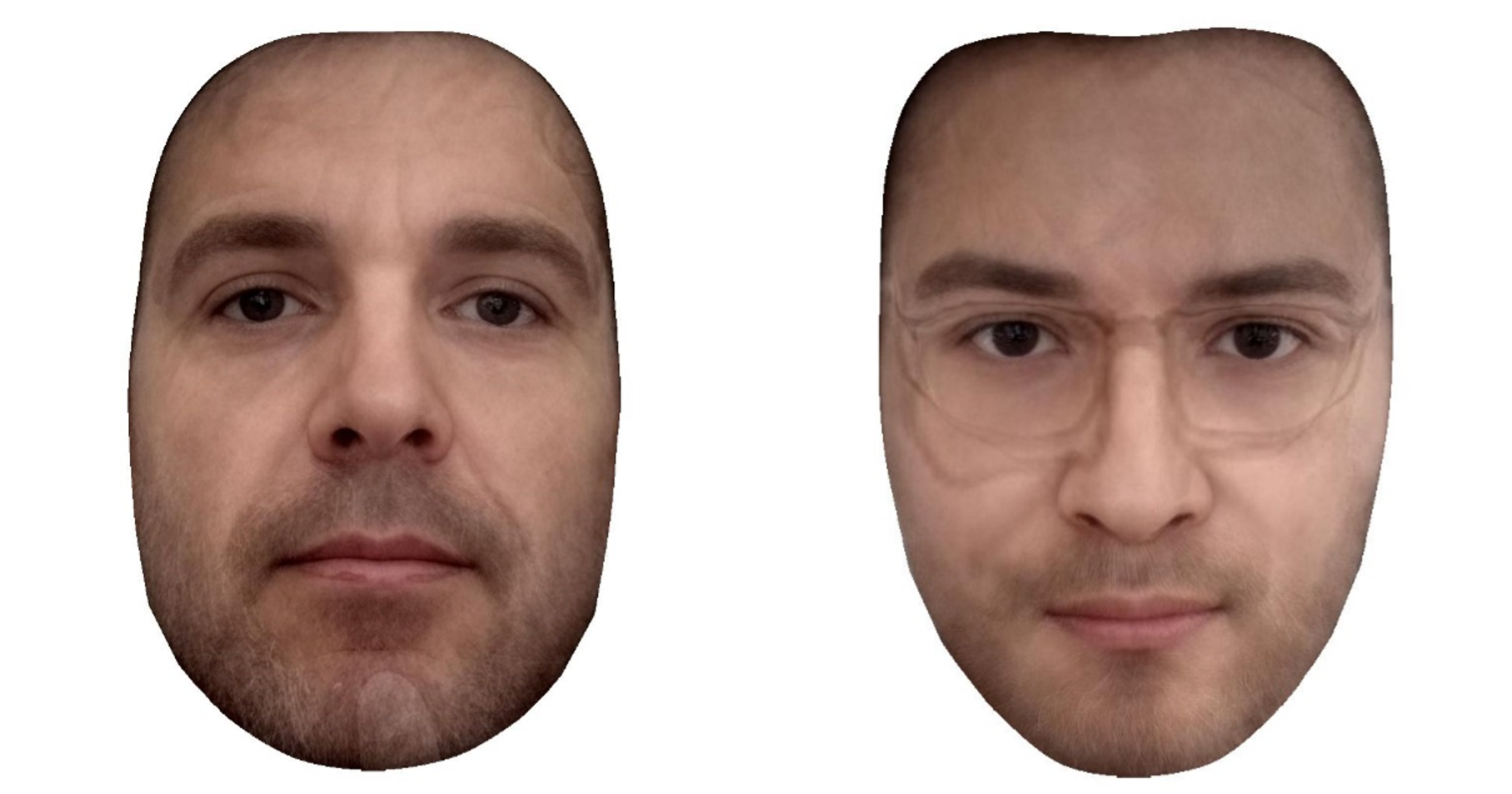
Can you tell a good father from his face?
Ronja was interested in perceptions of parental involvement from male faces, and conducted an ambitious project for her dissertation where she collected facial photographs of fathers and had them rated on parental involvement. She found that people use facial attractiveness as a cue when estimating parental ability.
Bartlome, R. I., & Lee, A. J. (2023) Facial attractiveness, but not facial masculinity, is used as a cue to paternal involvement in fathers. Adaptive Human Behavior and Physiology, 9, 182-197. FULL TEXT AVAILABLE
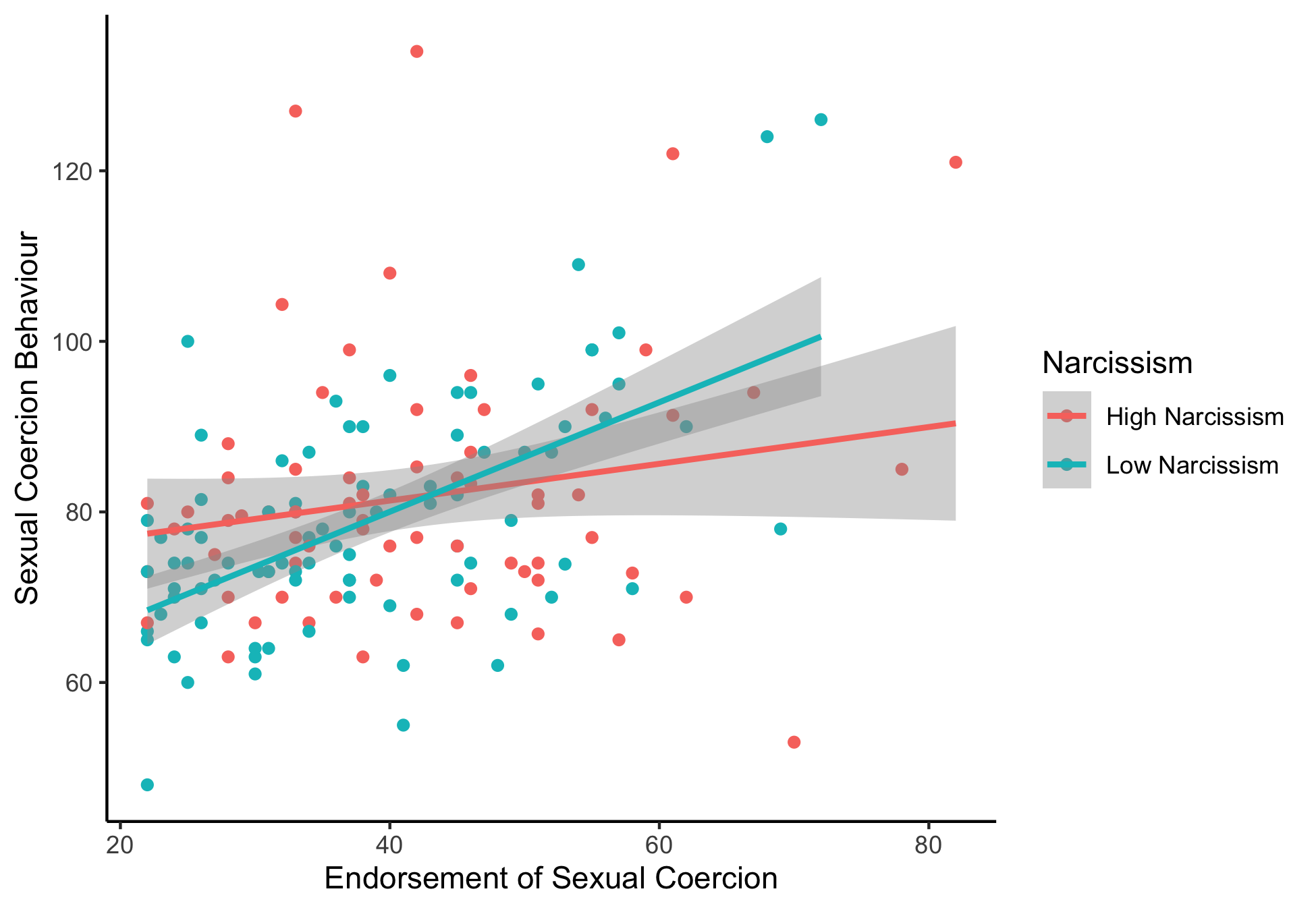
What developmental factors predicts engagement in sexual coercive behaviours?
Aoife and Roisin were psychology conversion students interested in forensic psychology, so we developed a project investigating factors that would predict men's engagement in sexual coercive behaviours from an evolutionary psychology perspective. This included developing a new scale to measure sexual coercive behaviours from participants.
McCollam, R., Mullaney, A., & Lee, A. J. (2021) Is the link between endorsement and engagement in sexual coercion associated with life history strategy? Personality and Individual Differences, 180, 110999. FULL TEXT AVAILABLE